Best Defensive Stocks to Buy Now
Investors are concerned about tariffs, inflation, interest rates and economic growth. The best defensive stocks can protect your portfolio against these risks.


Profit and prosper with the best of Kiplinger's advice on investing, taxes, retirement, personal finance and much more. Delivered daily. Enter your email in the box and click Sign Me Up.
You are now subscribed
Your newsletter sign-up was successful
Want to add more newsletters?

Delivered daily
Kiplinger Today
Profit and prosper with the best of Kiplinger's advice on investing, taxes, retirement, personal finance and much more delivered daily. Smart money moves start here.

Sent five days a week
Kiplinger A Step Ahead
Get practical help to make better financial decisions in your everyday life, from spending to savings on top deals.

Delivered daily
Kiplinger Closing Bell
Get today's biggest financial and investing headlines delivered to your inbox every day the U.S. stock market is open.

Sent twice a week
Kiplinger Adviser Intel
Financial pros across the country share best practices and fresh tactics to preserve and grow your wealth.

Delivered weekly
Kiplinger Tax Tips
Trim your federal and state tax bills with practical tax-planning and tax-cutting strategies.

Sent twice a week
Kiplinger Retirement Tips
Your twice-a-week guide to planning and enjoying a financially secure and richly rewarding retirement

Sent bimonthly.
Kiplinger Adviser Angle
Insights for advisers, wealth managers and other financial professionals.

Sent twice a week
Kiplinger Investing Weekly
Your twice-a-week roundup of promising stocks, funds, companies and industries you should consider, ones you should avoid, and why.

Sent weekly for six weeks
Kiplinger Invest for Retirement
Your step-by-step six-part series on how to invest for retirement, from devising a successful strategy to exactly which investments to choose.
Benjamin Graham, who is widely known as "the father of value investing," argued that defensive stocks should be moderately priced, have a good record of paying dividends and be conservatively financed.
This is what long-term value investors are looking for now. Given the volatility in the equities market and uncertainty around tariffs, interest rates and the economy, investors are looking for stocks with defensive qualities.
This means finding the best stocks to buy that will preserve investors' capital over the long term. Moreover, the top defensive stocks have the ability to grow their dividends.
Typically, these defensive companies generate a sufficient amount of free cash flow (FCF) that can support both dividend payments and also stock buybacks. FCF is the amount of cash flow that exceeds all the company's cash expenses (not including depreciation and amortization, for example).
In addition, FCF covers the company's capital expenditure needs like new plant and equipment purchases, as well as working capital spending. What's left is "free" to be spent on dividends, buybacks, debt reduction, acquisitions of companies and cash accumulation.
It's often the case that these companies are boring. But they are profitable, and they can keep growing even when economic conditions are rough.
In any event, they have long histories of generating good profit margins and cash flows during a variety of economic cycles.
Their price-to-earnings ratios are moderate, and they have good dividend yields. These qualities make them good defensive plays for the long term.
With that in mind, here are the six best defensive stocks to buy now.
Data is as of March 14. Dividend yields are calculated by annualizing the most recent payout and dividing by the share price.
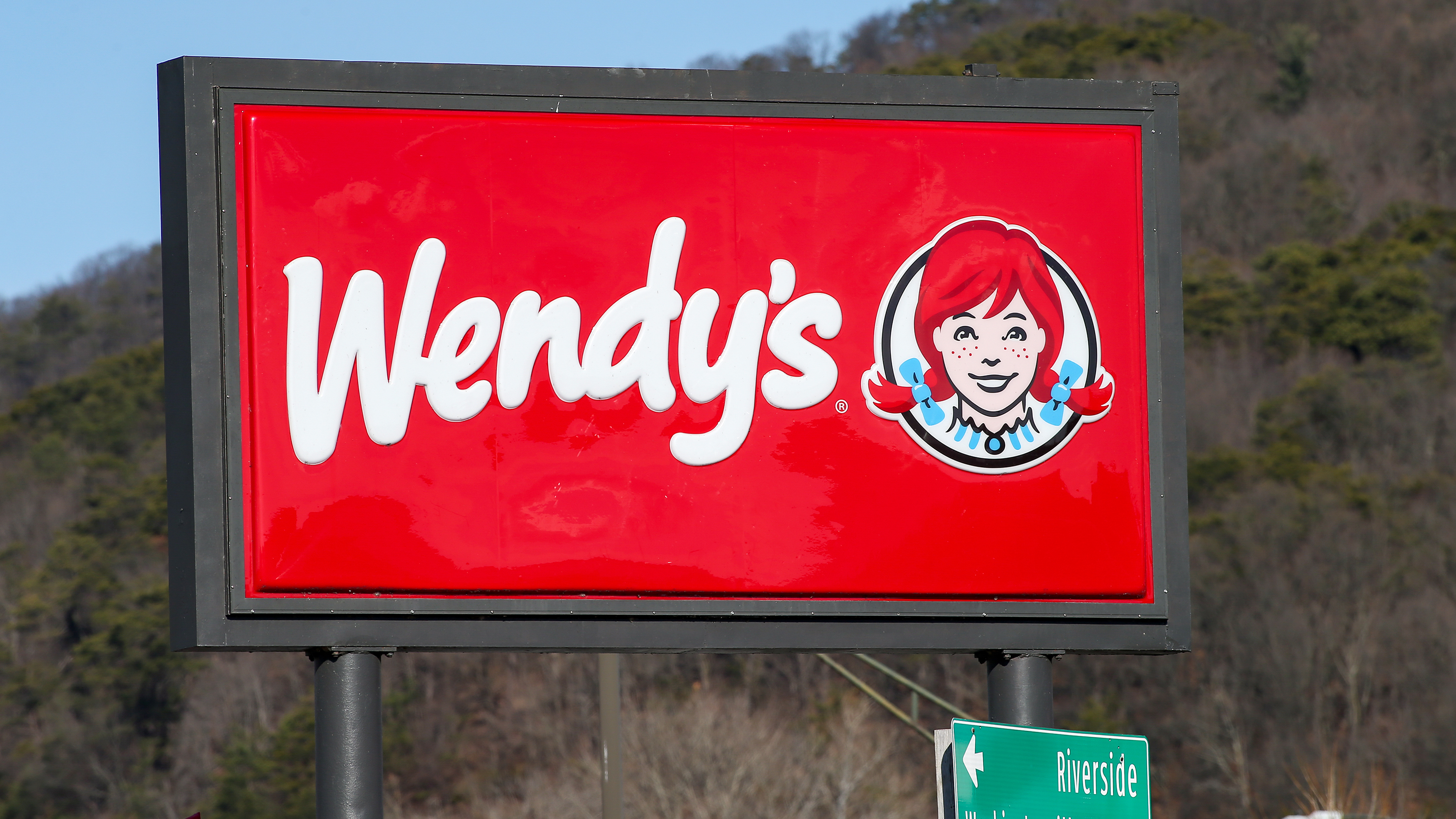
Wendy's
- Market value: $3.1 billion
- Dividend yield: 6.6%
Wendy's (WEN, $15.35) is the second-largest hamburger quick service restaurant (QSR) chain in the U.S. and the third-largest globally. It has more than 7,000 restaurants around the world, the majority of which are in the U.S.
Most of these are franchise-owned QSRs – roughly 93% of the stores in the U.S. are owned by 217 franchisees, and about 99% of the international QSRs are owned by 106 franchisees.
People love the Wendy's menu. Earnings, cash flow and dividends are growing, and the company forecasts meaningful growth next year as well.
Global same-store sales were up 1.5% in 2024, supported by 2.8% international growth. And total sales grew 3.1% to $14.5 billion in 2024 over 2023.
Adjusted earnings before interest, taxes, depreciation and amortization (EBITDA), a cash flow measure, grew 1.4% in 2024. Reported earnings per share (EPS) grew to $1.00 from 97 cents. Wendy's management forecast that in 2025 EPS will be 98 cents to $1.02.
And FCF is expected to rise to $280 million at the midpoint of guidance. This is more than enough to cover Wendy's $1.00 per share annual dividend, which only costs the company $209.3 million. WEN currently has 205.4 million shares outstanding, and this is expected to decrease as it buys back more of its shares.
For example, the company repurchased 2.4 million shares last year for $41 million, and this year, it's on track to do the same.
That means that its 6.6% dividend yield looks secure. If that's not enough, investors seeking out the best defensive stocks can rest easy knowing the company has paid dividends for the past 20 years.
And with WEN stock trading at 15.3 times forward earnings – below its five-year average – it is one of the best cheap stocks to boot.
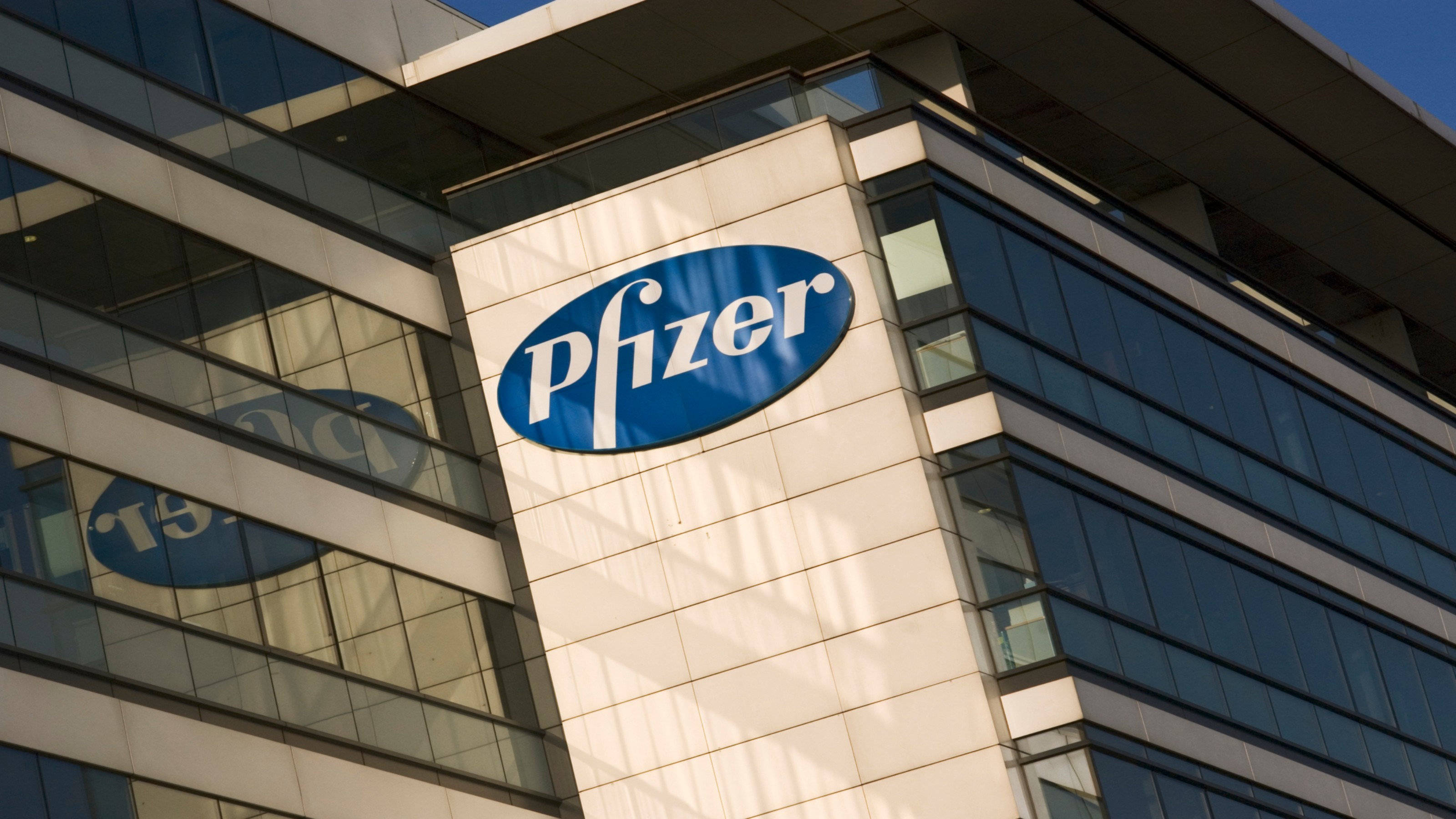
Pfizer
- Market value: $145.8 billion
- Dividend yield: 6.7%
Pfizer (PFE, $25.72) is a diversified pharmaceutical company that offers medicines and vaccines in a broad spectrum of therapeutic areas. Pfizer has a sturdy foundation of diverse drugs that produce strong cash flows for its shareholders.
Moreover, its huge size – $63.6 billion in revenue in 2024, including 22% year-over-year growth in Q4 alone – allows it to spend large amounts on R&D and capital expenditures.
This gives PFE the kind of economies of scale that drug development requires.
For example, in its fiscal year ended December 31, 2024, Pfizer generated $26 billion in free cash flow, after all capex spending and working capital needs.
That more than covered the company's $9.5 billion in dividends and allowed it to pay off $7.8 billion of debt.
Pfizer forecast flat to lower revenue in 2025, as the COVID-19 vaccine revenue windfall effect is now exhausted. Management sees benefits, noting in its recent earnings presentation that revenue volatility is "largely in the past as COVID-related uncertainties have diminished."
And Pfizer should still produce enough cash flow to cover its annual dividend of $1.72 per share and keep its 6.7% dividend yield very secure.
This is especially the case as Pfizer had paid a dividend for the past 35 years, including 14 consecutive years of dividend growth. The healthcare stock is inexpensive, too, at just 8.7 times forward earnings.
Combined with its strong free cash flow and its high dividend yield, investors should consider PFE as one of the best defensive stocks going forward.
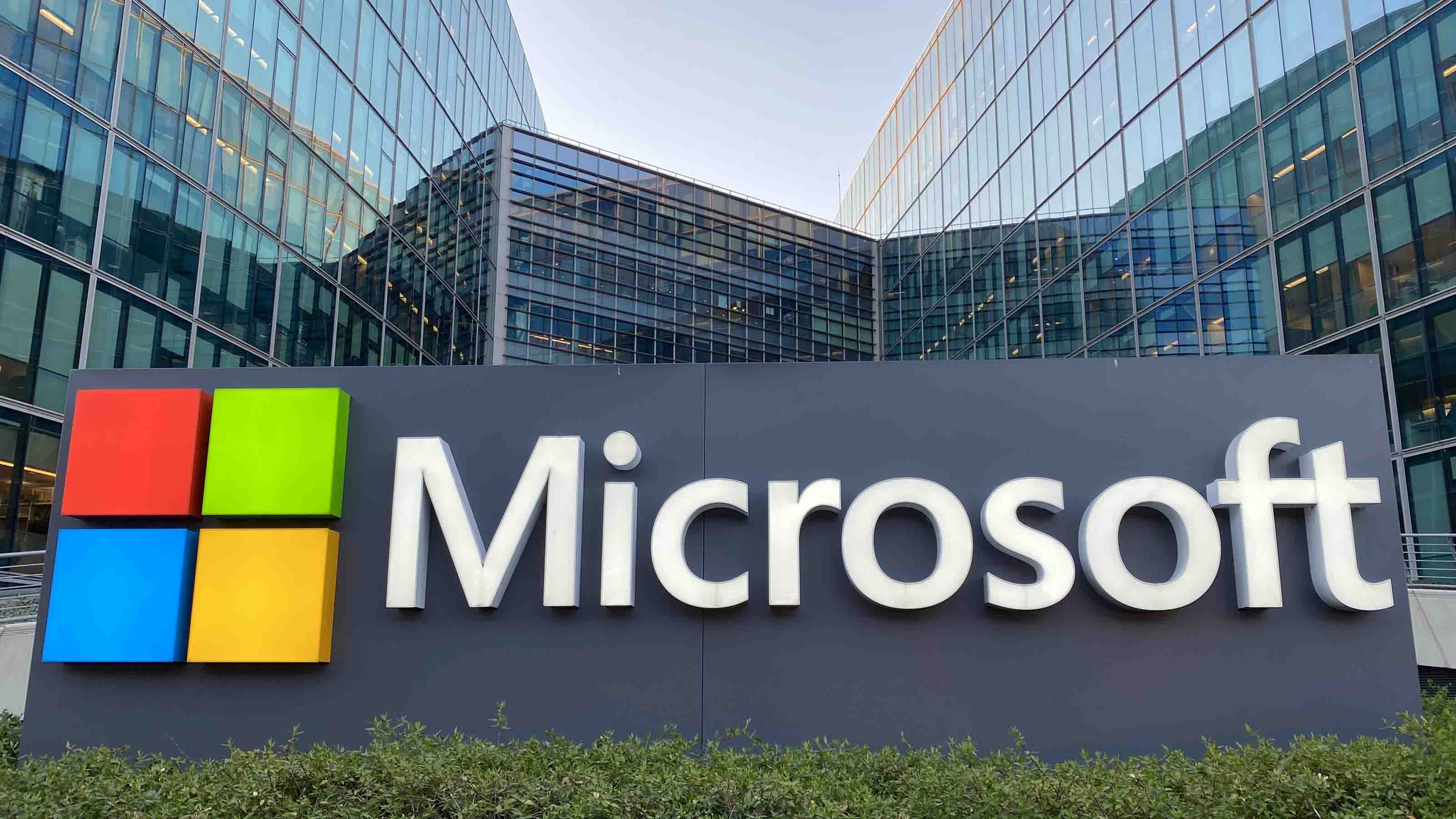
Microsoft
- Market value: $2.9 trillion
- Dividend yield: 0.9%
Microsoft (MSFT, $388.56) is a major software company with tentacles in every area of the industry: operating systems, cloud, gaming, artificial intelligence (AI) and application software.
MSFT has been around since 1975. More importantly, it has paid a dividend for the last 21 years, including 19 consecutive years of dividend growth.
Its powerful free cash flow is more than sufficient to cover dividends, share repurchases, acquisitions and debt reduction.
For example, Microsoft pays a $3.32 per-share annual dividend, up 10.7% over last year, and it's likely to rise a similar amount this year. That gives MSFT a 0.9% dividend yield, not bad for a tech stock.
And over the last 12 months ended June 30, 2024, Microsoft generated roughly $74 billion in free cash flow. That more than covered the $22 billion dividend cost as well as $17 billion in share buybacks for the fiscal year.
Microsoft's Office, LinkedIn and cloud services products (Productivity and Business Processes division) continue to enjoy strong appeal with consumers. And its other revenue in Intelligent Cloud is still growing at a double-digit pace.
The bottom line is that Microsoft's products are still relevant and the company is growing nicely.
Given its healthy dividend yield and strong buyback program, investors might expect that the Dow Jones stock will do reasonably well over the next year.
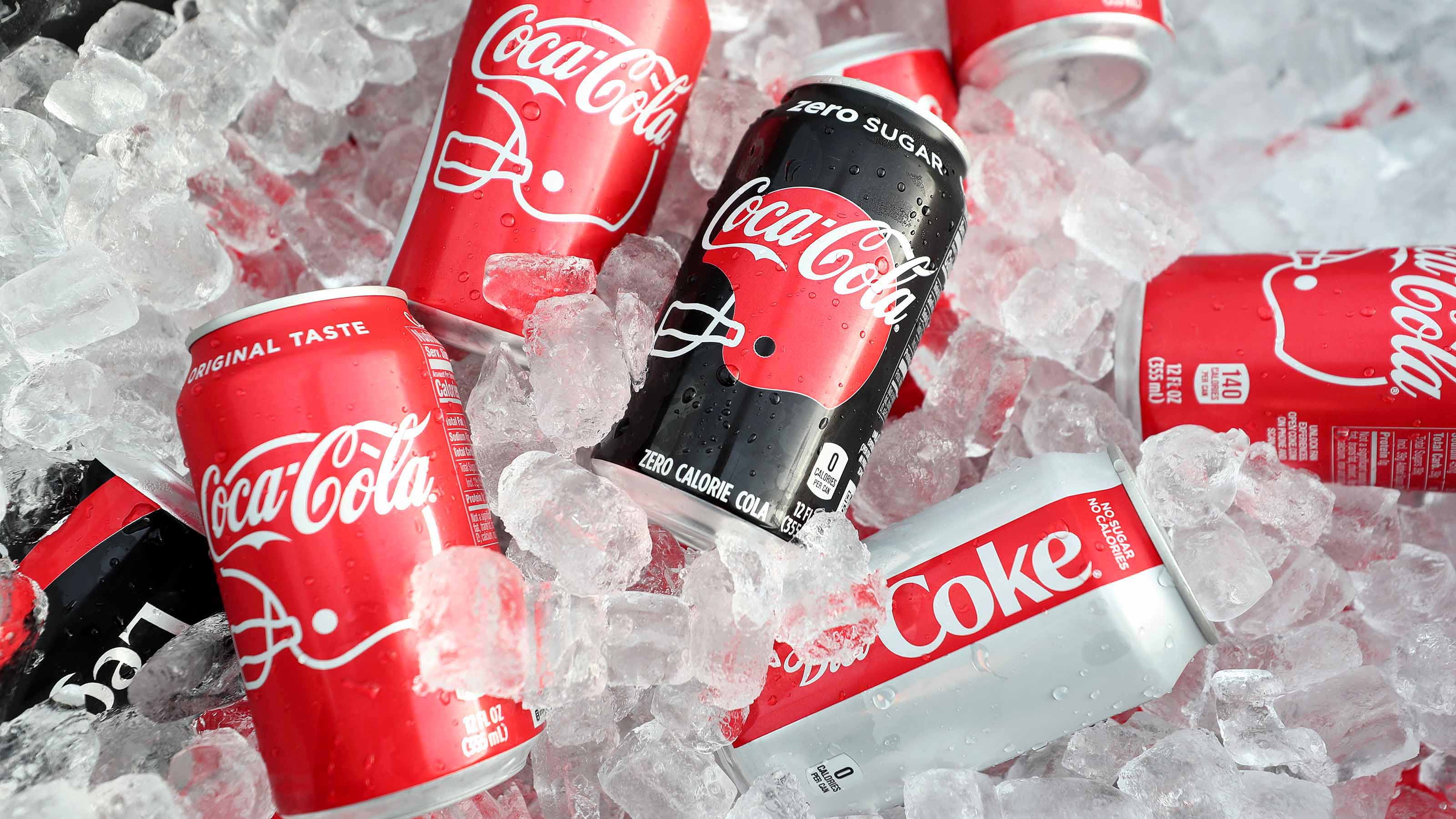
Coca-Cola
- Market value: $297.4 billion
- Dividend yield: 2.9%
Coca-Cola (KO, $69.15) is a well-known beverage company that has long produced consistently growing earnings, cash flow and dividends.
Moreover, Coca-Cola has been buying back shares over and above the amount it issues to employees. This also helps increase its earnings and dividends on a per share basis.
In 2024, Coca-Cola's global sales were up 3% to $47 billion, and on a non-GAAP "organic" basis, they grew 12%. This was composed of an 11% rise in prices as well as a 2% increase in concentrate volume.
Free cash flow was healthy at $4.7 billion. Although that was down from the prior year, it still represents a very respectable 10% of total sales. In other words, 10% of all Coca-Cola's sales goes straight to the company's net cash pile, before it spends money on dividends, buybacks and debt reduction.
In addition, Coca-Cola says it is gaining market share in the nonalcoholic ready-to-drink ("NARTD") beverages segments.
As a result, investors can continue to expect that Coca-Cola will keep raising its dividend as it has for the past 62 years straight.
That is quite an achievement, and is likely one reason why KO is one of Warren Buffett's favorite stocks and a long-time member of the Berkshire Hathaway equity portfolio.
The famed value investor and CEO of Berkshire Hathaway (BRK.B) has held shares in the company for 36 years, since 1988. Berkshire's stake in KO stock is now 9.3%, according to Coca-Cola's latest proxy.
Given that KO is at just 23 times forward earnings, slightly below its five-year average, it looks moderately priced, given its growth.
Along with its 2.9% yield, KO is one of the best defensive stocks to buy.
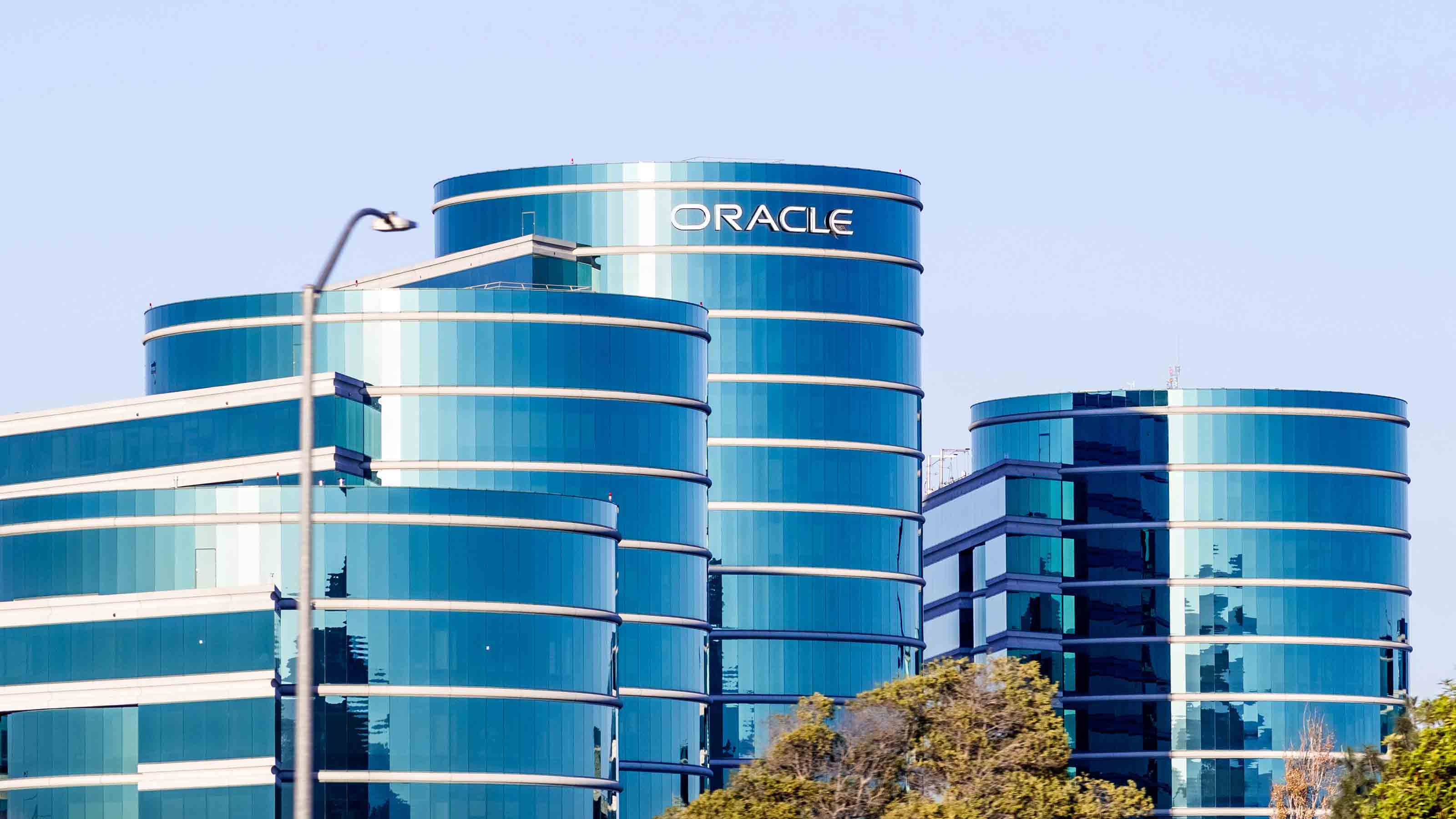
Oracle
- Market value: $418.5 billion
- Dividend yield: 1.4%
Oracle (ORCL, $149.27) is a major cloud software and services company that offers enterprise resource planning and enterprise performance management products.
In its most recently reported quarter, the company said revenue was up 6% year over year in U.S. dollars and 8% in constant-currency terms to $14.1 billion.
Oracle is extremely profitable and pays a hefty dividend – especially for a tech stock – along with share buybacks.
For example, Oracle's non-GAAP operating margins for the quarter were an impressive 44%. This puts it in the upper tier of profitable software companies. In addition, Oracle generated $5.8 billion in free cash flow during the last 12 months (LTM).
That represents a healthy 11% of its LTM revenues. This FCF allows Oracle to pay a decent dividend and buy back its shares.
For example, the software company just hiked its dividend by 25% to $2.00 per share annually, giving ORCL stock a 1.4% dividend yield. This is the ninth year in a row ORCL has raised its dividend, showing that it is likely to be hiked again next year.
At 25 times forward earnings, the stock still looks to be reasonably priced. For example, the forward P/E for the S&P 500 is moderately higher at 22.
Given solid revenue growth, operating margins, free cash flow, dividends and buybacks, Oracle stock looks like one of the best defensive stocks to buy right now.
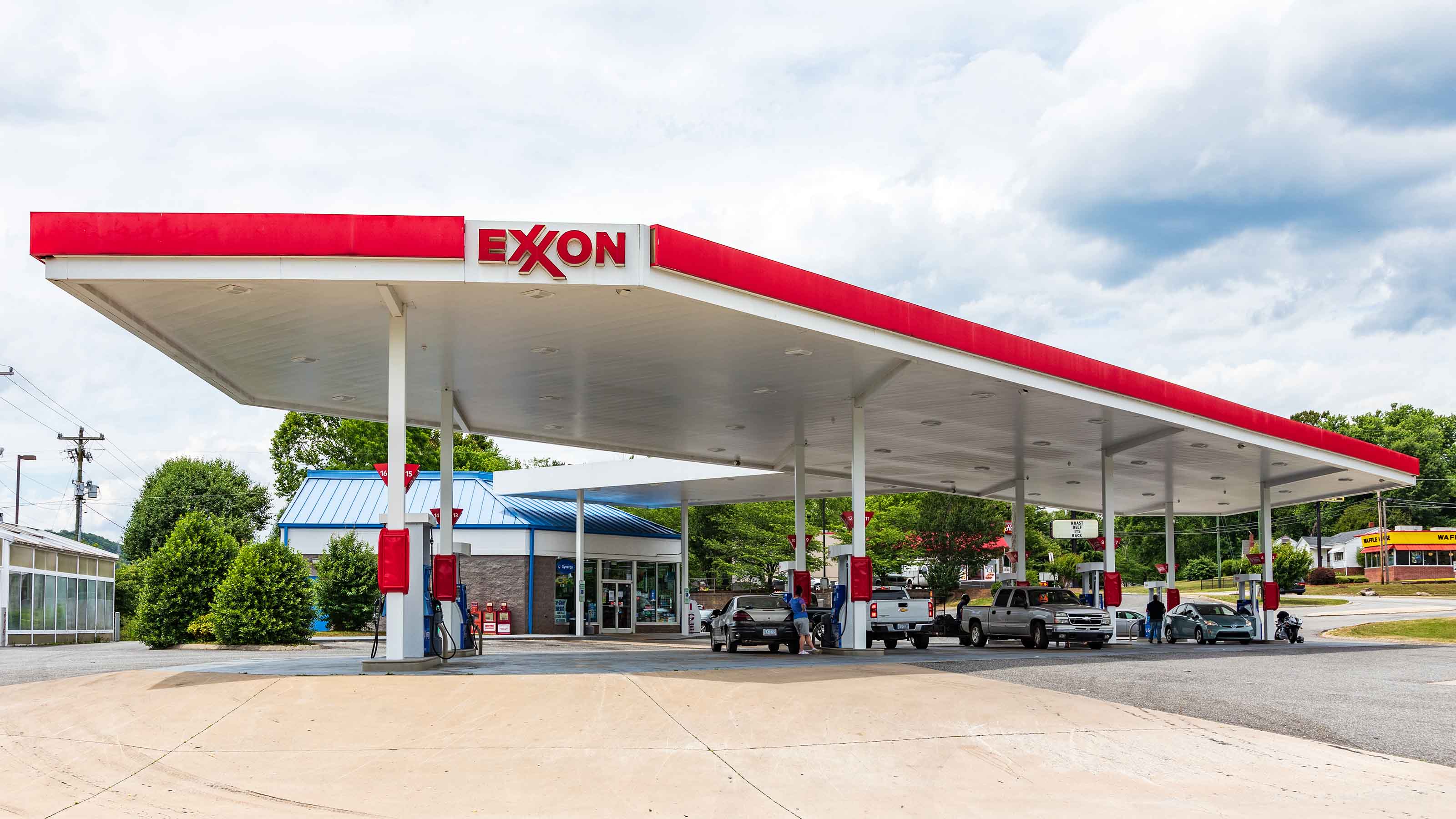
Exxon Mobil
- Market value: $485.6 billion
- Dividend yield: 3.6%
Exxon Mobil (XOM, $111.90) is one of the biggest oil and gas companies in the world, with fiscal 2024 revenue of $349.6 billion, up 1.55% from $344.6 billion in 2023.
This company has a long history, a solid brand, and is essentially a cash cow. And drivers are going to need oil and gas products for a good while, despite the move to electric vehicles.
Cash flow continues to be ample. The company generated $34.4 billion in free cash flow after all its capex spending.
As for fiscal 2025, analysts expect to see lower revenue at $340.4 billion, which isn't too surprising given the recent trajectory for oil prices. Nevertheless, the company is still likely to produce a significant amount of free cash flow going forward.
Even if FCF fell by double-digits over the fiscal year, it still means Exxon produced at least $30 billion in FCF over the 12-month period.
That will be more than enough to cover the $3.96 per share annual dividend. This costs Exxon $16.7 billion annually, given that it has 3.67 billion shares outstanding.
And XOM management committed to buying back $20 billion in stock each year through 2025 following the 2023 acquisition of Pioneer Natural Resources.
This will drop the share count and improve earnings and dividends per share.
What's more, XOM is one of the best value stocks at the moment, trading at just 14.9 times forward earnings.
Exxon has grown its dividend every year over the past 42 years, and its 3.6% dividend yield is more than covered by expected cash flow going forward.
These points make XOM stock one of the best defensive stocks for investors right now.
Related content
Profit and prosper with the best of Kiplinger's advice on investing, taxes, retirement, personal finance and much more. Delivered daily. Enter your email in the box and click Sign Me Up.

Mark R. Hake, CFA, is a Chartered Financial Analyst and entrepreneur. He has been writing on stocks for over six years and has also owned his own investment management and research firms focused on U.S. and international value stocks, for over 10 years. In addition, he worked on the buy side for investment firms, hedge funds, and investment divisions of insurance companies for the past 36 years. Lately, he is also working as Chief Strategy Officer for a tech start-up company, Foldstar Inc, based in Princeton, New Jersey.
-
 Dow Adds 1,206 Points to Top 50,000: Stock Market Today
Dow Adds 1,206 Points to Top 50,000: Stock Market TodayThe S&P 500 and Nasdaq also had strong finishes to a volatile week, with beaten-down tech stocks outperforming.
-
 Ask the Tax Editor: Federal Income Tax Deductions
Ask the Tax Editor: Federal Income Tax DeductionsAsk the Editor In this week's Ask the Editor Q&A, Joy Taylor answers questions on federal income tax deductions
-
 States With No-Fault Car Insurance Laws (and How No-Fault Car Insurance Works)
States With No-Fault Car Insurance Laws (and How No-Fault Car Insurance Works)A breakdown of the confusing rules around no-fault car insurance in every state where it exists.
-
 Stocks Sink With Alphabet, Bitcoin: Stock Market Today
Stocks Sink With Alphabet, Bitcoin: Stock Market TodayA dismal round of jobs data did little to lift sentiment on Thursday.
-
 Nasdaq Slides 1.4% on Big Tech Questions: Stock Market Today
Nasdaq Slides 1.4% on Big Tech Questions: Stock Market TodayPalantir Technologies proves at least one publicly traded company can spend a lot of money on AI and make a lot of money on AI.
-
 The New Fed Chair Was Announced: What You Need to Know
The New Fed Chair Was Announced: What You Need to KnowPresident Donald Trump announced Kevin Warsh as his selection for the next chair of the Federal Reserve, who will replace Jerome Powell.
-
 Nasdaq Drops 172 Points on MSFT AI Spend: Stock Market Today
Nasdaq Drops 172 Points on MSFT AI Spend: Stock Market TodayMicrosoft, Meta Platforms and a mid-cap energy stock have a lot to say about the state of the AI revolution today.
-
 S&P 500 Tops 7,000, Fed Pauses Rate Cuts: Stock Market Today
S&P 500 Tops 7,000, Fed Pauses Rate Cuts: Stock Market TodayInvestors, traders and speculators will probably have to wait until after Jerome Powell steps down for the next Fed rate cut.
-
 S&P 500 Hits New High Before Big Tech Earnings, Fed: Stock Market Today
S&P 500 Hits New High Before Big Tech Earnings, Fed: Stock Market TodayThe tech-heavy Nasdaq also shone in Tuesday's session, while UnitedHealth dragged on the blue-chip Dow Jones Industrial Average.
-
 Dow Rises 313 Points to Begin a Big Week: Stock Market Today
Dow Rises 313 Points to Begin a Big Week: Stock Market TodayThe S&P 500 is within 50 points of crossing 7,000 for the first time, and Papa Dow is lurking just below its own new all-time high.
-
 January Fed Meeting: Updates and Commentary
January Fed Meeting: Updates and CommentaryThe January Fed meeting marked the first central bank gathering of 2026, with Fed Chair Powell & Co. voting to keep interest rates unchanged.
